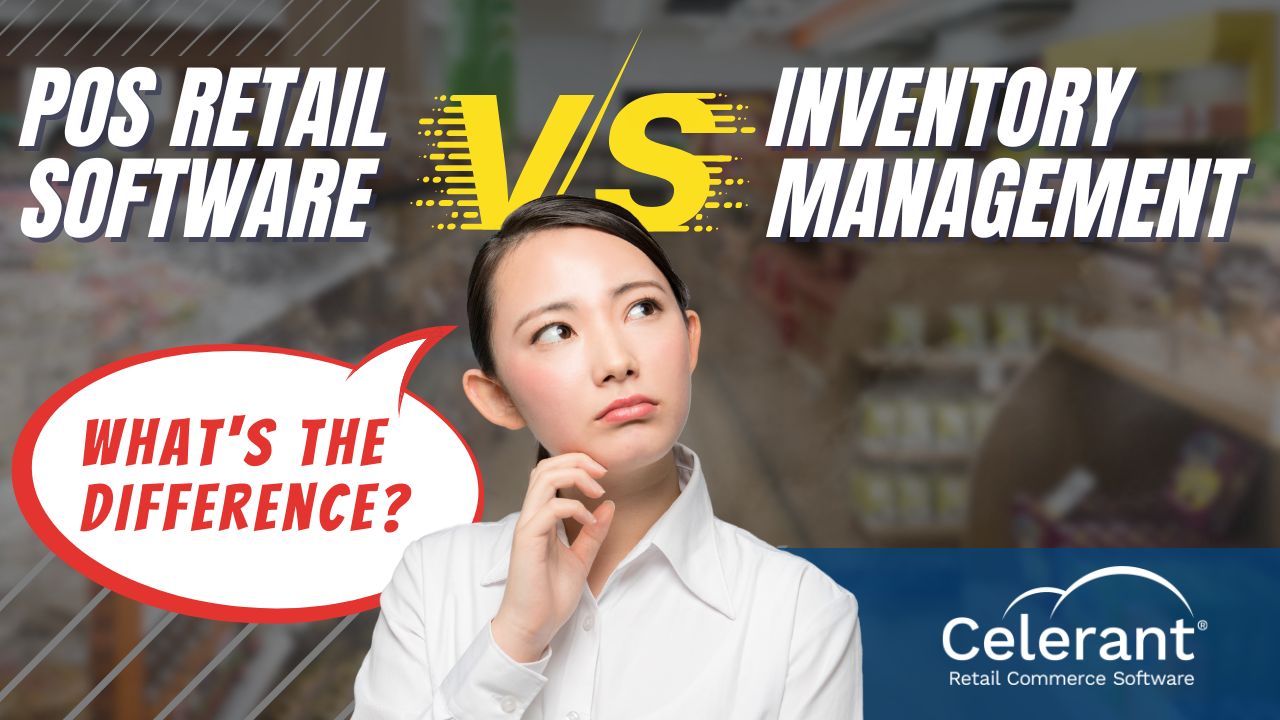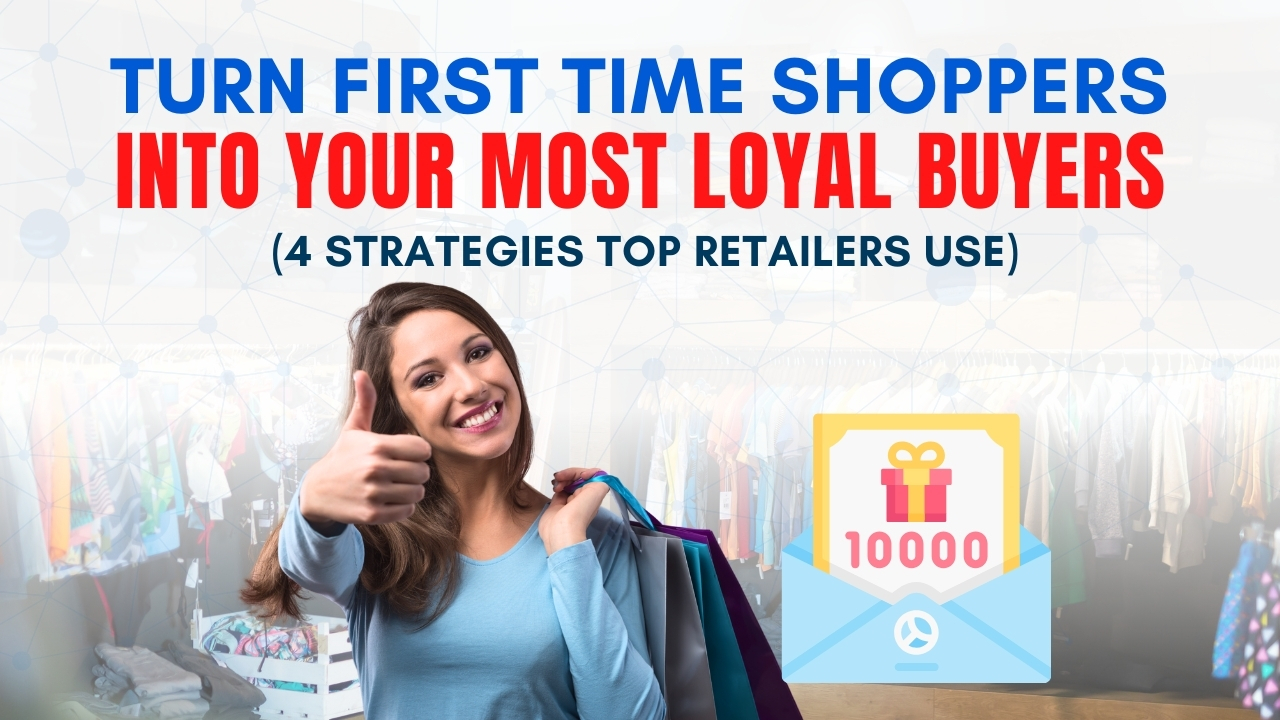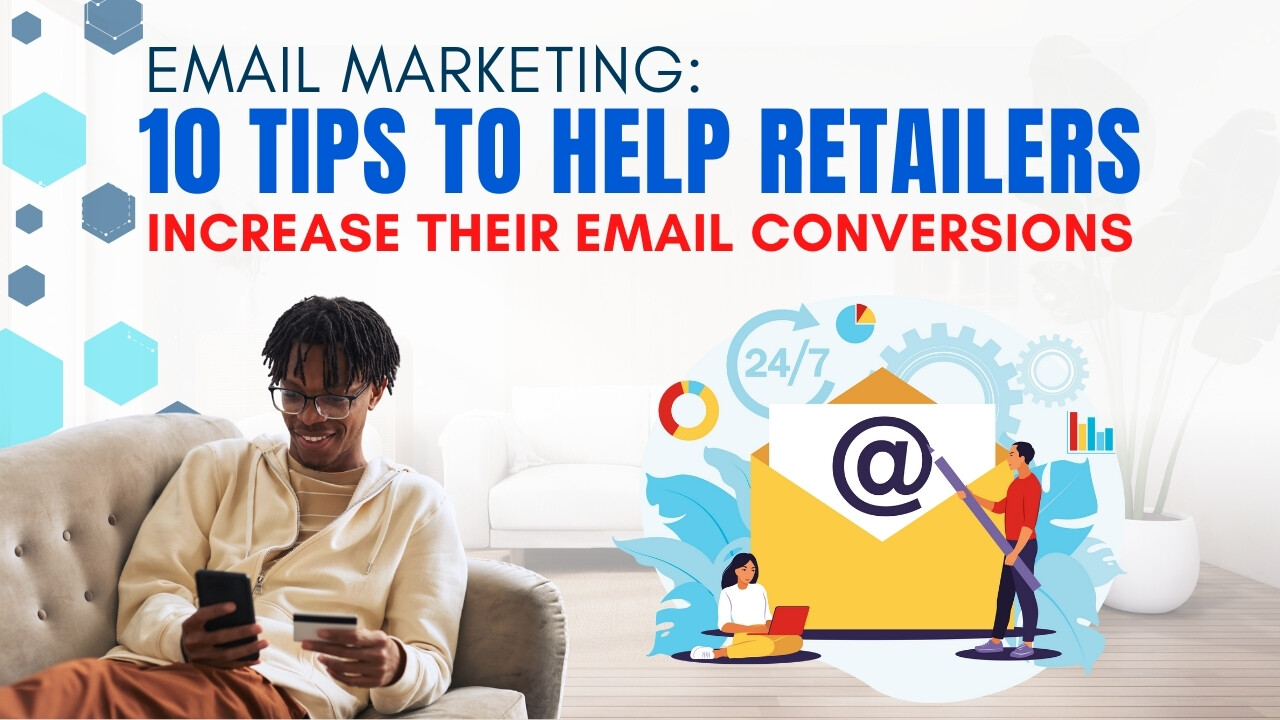Blog
POS Retail Software vs. Inventory Management: What’s the Difference
April 27, 2023 / 5 minute read / By Zoya Naeem

Blog

In today’s fast-paced retail environment, managing inventory and processing transactions efficiently is crucial to staying competitive. This is where point of sale (POS) and inventory management systems come into play. While the two are often used interchangeably, they serve distinct purposes in helping businesses stay on top of their operations.
In fact, according to a report by Technavio, the global POS software market is expected to increase by $46.07 billion by 2027 , while the inventory management software market is projected to grow to $3.2 billion by 2025. This highlights the increasing demand for these systems and the need for businesses to understand the differences between them.
In this blog post, we’ll explore the key features and capabilities of POS retail software and inventory management systems, their advantages, their limitations, and most importantly, the differences between them. By the end of this post, you’ll have a better understanding of which system(s) maybe most appropriate for your business needs.
A Point of Sale (POS) retail system is a software application designed to help businesses manage their sales transactions, typically in real-time. It includes essential features such as transaction processing, sales tracking, customer management, reporting, and analytics. Which allows retailers to operate more efficiently and streamline their operations.
Today’s consumers value convenience above all else, and expect retailers to offer innovative ways to save them time and effort. According to a survey conducted by the National Retail Federation, 97% of consumers have abandoned a purchase because it was inconvenient. This highlights the importance of POS systems in the retail industry, and how these systems can help businesses streamline their operations.
Modern POS systems, like Cumulus Retail, go beyond the basic transaction processing and sales tracking functions to provide advanced capabilities like inventory management, business software integrations, customizable reporting, and analytics. By integrating with eCommerce platforms, Cumulus Retail offers a comprehensive omnichannel solution that can help retailers grow their businesses. It comes equipped with all the tools businesses need to succeed in today’s competitive retail landscape.
In addition to boosting operational efficiency and driving sales, POS systems also help improve data security by encrypting and tokenizing transactions and customer data. It’s crucial for businesses to carefully evaluate the features and limitations of each system before selecting one that meets their specific needs.
An inventory management system is a software application used by businesses to manage and track their inventory levels. This can include everything from raw materials to finished goods and it’s critical for ensuring that a business can meet customer demand while keeping costs low.
Inventory systems typically include features such as inventory tracking, supply chain management, reordering and replenishment, forecasting and demand planning, to help businesses optimize their inventory levels. These systems can also provide valuable data insights that can be used to make more informed decisions around purchasing, production, and pricing.
According to a recent study, 43% of small businesses either don’t track their inventory at all, or use a manual method such as pen and paper. However, this can lead to errors, waste, and lost revenue. In fact, businesses with poor inventory management practices can see significant reduction in profitability, according to a survey by Wasp Barcode Technologies.
To avoid these challenges, businesses can turn to an all-in-one POS and retail software, which offers advanced features such as real-time inventory tracking, demand forecasting, and automated reordering. With these tools, businesses can optimize their inventory levels to minimize waste and reduce carrying costs, while also ensuring that they always have the products their customers want in stock.
Of course, like any software solution, there are limitations to inventory systems as well. For example, these systems can be expensive to implement and may require ongoing maintenance and upgrades. Additionally, they may not be suitable for businesses with very low inventory volumes or those that rely on just-in-time manufacturing practices.
However, an inventory management system can be an incredibly valuable tool for businesses looking to optimize their operations and drive growth. By leveraging the latest technology and data insights, businesses can ensure that they always have the products their customers want, while keeping costs low and profits high.
Choosing the right system for your business can be a daunting task. To help simplify the decision-making process, we’ve created a comparison table that highlights the key differences between POS software and inventory systems. We have also added how an all-in-one solution like Cumulus Retail can provide retailers with the best of both worlds, combining the features and capabilities of both systems in a single, integrated platform:
| Features | POS System | Inventory System | Cumulus Retail |
|---|---|---|---|
| Transaction | Processing sales transactions in real-time. | Processing sales transactions in real-time. | |
| Processing | Offers multiple payment options and integrations. | Offers multiple payment options and integrations, including credit/debit cards, mobile payments, and loyalty program integrations. | |
| Sales Tracking | Tracking sales data in real-time. | Tracking sales data in real-time. | |
| Customer Management | Management of customer data, loyalty programs, and offers tools to manage customer profiles and interactions. | Customer data management, loyalty program and offers personalized marketing capabilities. | |
| Inventory Tracking | Tracking inventory levels and locations. | Tracking inventory levels and locations. | |
| Supply Chain Replenishment | Managing supplier relationships and purchase orders. | Managing supplier relationships and purchase orders for seamless inventory replenishment. | |
| Reordering and Replenishment | Automated restocking and reordering. | Automated restocking and reordering based on inventory thresholds and demand. | |
| Forecasting and Demand Planning | Analyzing sales trends and forecasting demand. | Analyzing sales trends, forecasting demand, and automating purchase orders based on predicted demand. |
Today, there are many retail software solutions that offer a wide range of features and capabilities that combine the best of both POS and inventory management systems. With advanced capabilities for transaction processing, sales tracking, customer management, and inventory tracking, these all-in-one systems offer retailers a comprehensive solution for managing their business operations.
Additionally, these all-in-one retail systems will often include supply chain management features, reordering and replenishment automation, forecasting, and demand planning capabilities to ensure that retailers have the right products on hand at the right time. All of these features can be integrated into a single, easy-to-use platform, providing retailers with a seamless and efficient solution for managing their business.
A point of sale system and an inventory management system are both essential tools for businesses, but they serve different purposes.
While a POS system focuses on streamlining sales transactions and enhancing the customer experience, an inventory management system is designed to optimize supply chain management and ensure stock availability.
Understanding the differences between these systems is crucial for business owners who want to maximize their operational efficiency and sales performance. Ensuring that the software you are selecting for your business handles all of your needs is important, and with today’s level of technology, you can find a combined solution that can do it all, and in one, real-time system.
Evaluating your business needs can help you determine which system(s) are most appropriate for your specific situation. Whether you’re using a standalone system or an all-in-one solution like Cumulus Retail, choosing the right system can help you achieve your business goals and stay ahead of the competition.
Connect with our team today to learn more about how we can help your business grow.
 Explore four simple strategies to keep your first-time buyers coming back (with a little help from your… |
 How can retailers improve their email marketing metrics to achieve higher open rates, click through… |